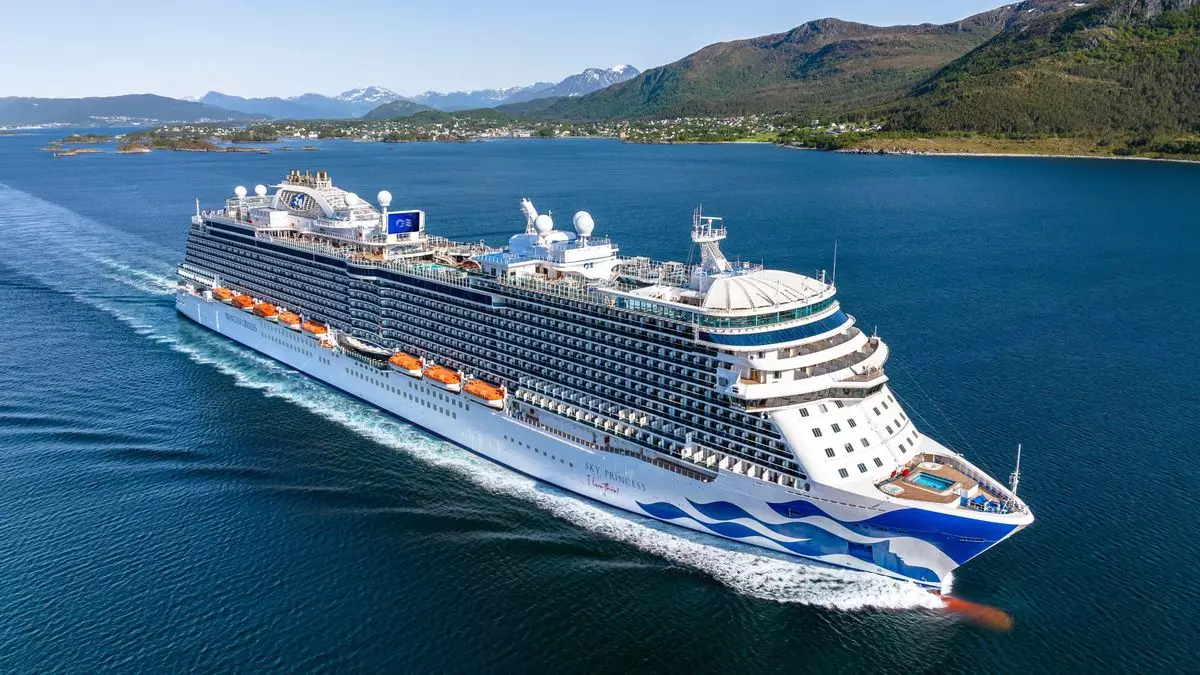The cruise industry is experiencing a shift in booking trends that is reshaping the landscape of summer sailings. With cruisers facing limited availability and record-high inventory levels, the usual last-minute bookings are becoming a thing of the past. Industry insiders, such as cruise line executives and travel advisors, are witnessing a surge in demand that is pushing booking curves well into the year 2025, signaling a new era in cruise travel planning.
Major cruise lines, including Royal Caribbean, Carnival Corp., and Norwegian Cruise Line Holdings, are all reporting unprecedented booking numbers, with 2025 sailings taking center stage. At Signature Travel Network, CEO Alex Sharpe notes a significant increase in 2025 bookings compared to previous years, reflecting a growing trend across the industry. Royal Caribbean Group CEO Jason Liberty highlights the company’s transition to focusing more on future bookings, with the majority of their 2024 inventory already accounted for.
The cruise industry’s emphasis on revenue management and long-term planning is driving the extended booking curve phenomenon. Carnival Corp.’s CEO, Josh Weinstein, mentions that strong pricing strategies have enabled the company to secure bookings well in advance, ensuring a steady flow of business for the coming years. By optimizing revenue management practices, cruise lines are streamlining their operations and enhancing the overall booking experience for customers.
Travel advisors, such as Suzy Schreiner of Azure Blue Vacations, are observing a shift in consumer behavior towards early booking practices. Customers are realizing the importance of securing their desired accommodations early on, as inventory shortages continue to pose a challenge for last-minute bookings. The increase in demand is prompting cruisers to plan their trips well in advance, a trend that is likely to persist in the future.
Luxury cruise brands, like Cunard Line, are embracing the trend of early bookings by releasing itineraries well into 2026. Matt Gleaves, vice president of commercial for Cunard North America, highlights the brand’s focus on catering to past guests and meeting the growing demand for luxury travel experiences. As competitors navigate the evolving market dynamics, it’s essential for cruise lines to innovate and adapt to changing consumer preferences.
Global Trends and Economic Factors
The surge in cruise bookings is not limited to a single region, as more Americans are choosing to book European cruises well in advance. Norwegian Cruise Line Holdings’ CFO, Mark Kempa, emphasizes the strong consumer interest in pre-booking trips and paying premium prices for quality travel experiences. The industry’s response to changing market dynamics underscores the need for strategic planning and a customer-centric approach to cruise travel.
The future of cruise travel is evolving rapidly, with extended booking curves and increased demand shaping the industry landscape. As cruise lines adapt to changing market conditions and consumer preferences, strategic planning and innovative revenue management practices will be crucial for success in the years to come. By understanding the shifts in consumer behavior and market trends, the cruise industry can navigate the challenges ahead and capitalize on the growing demand for unforgettable travel experiences.


Leave a Reply